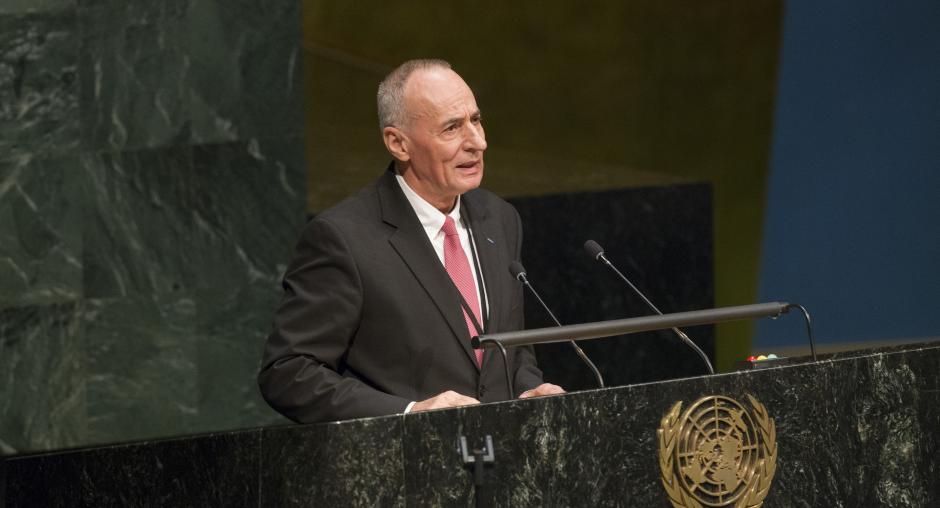OSCE, at UN General Assembly Special Session on world drug problem, highlights importance of strengthening co-operation in combating trafficking

NEW YORK, 21 April 2016 – Co-operation is needed more than ever to address the world drug problem and to significantly improve international and regional security, said the Head of the OSCE’s Transnational Threats Department’s Strategic Police Matters Unit, Guy Vinet on Wednesday as he addressed the United Nations General Assembly Special Session (UNGASS 2016) in New York on the world drug problem.
He said that the OSCE contributed to preparations for UNGASS 2016 when foreign ministers of its 57 participating States in December 2015 adopted a Ministerial Declaration on OSCE Activities in Support of Global Efforts in Tackling the World Drug Problem.
“This document contains the OSCE recommendations for the UNGASS 2016 aimed at supporting the three international drug control conventions, pursuing a balanced and integrated approach to reducing both illicit drug supply and demand, developing partnerships with the private sector with a view to reducing drug-related crime, and promoting healthy living,” said Vinet. “This set of operational recommendations will help the participating States and Partners for Co-operation to actively develop their collaboration in combating the threat of illicit drugs in a comprehensive and cross-dimensional manner.”
Vinet said that illicit drugs pose a persistent challenge to health, safety and well-being of citizens and the international community, and that OSCE with its 57 participating States and 11 Partners for Co-operation works closely with the United Nations and its Office on Drugs and Crime, with which the OSCE Secretariat recently signed a Joint Action Plan for 2016-2017.
UNGASS 2016, opened by Mogens Lykketoft, President of the 70th session of the General Assembly, is reviewing the progress made in the implementation of the 2009 Political Declaration and Plan of Action on International Cooperation towards an Integrated and Balanced Strategy to Counter the World Drug Problem. Participants, with Heads of States, Cabinet Ministers and other high-ranking officials among them, have adopted an outcome document - Our Joint Commitment to Effectively Addressing and Countering the World Drug Problem - in which member States reaffirmed their commitments to the goals and objectives of the three international drug control conventions, and their determination to tackle the world drug problem and actively promote a society free of drug abuse.
